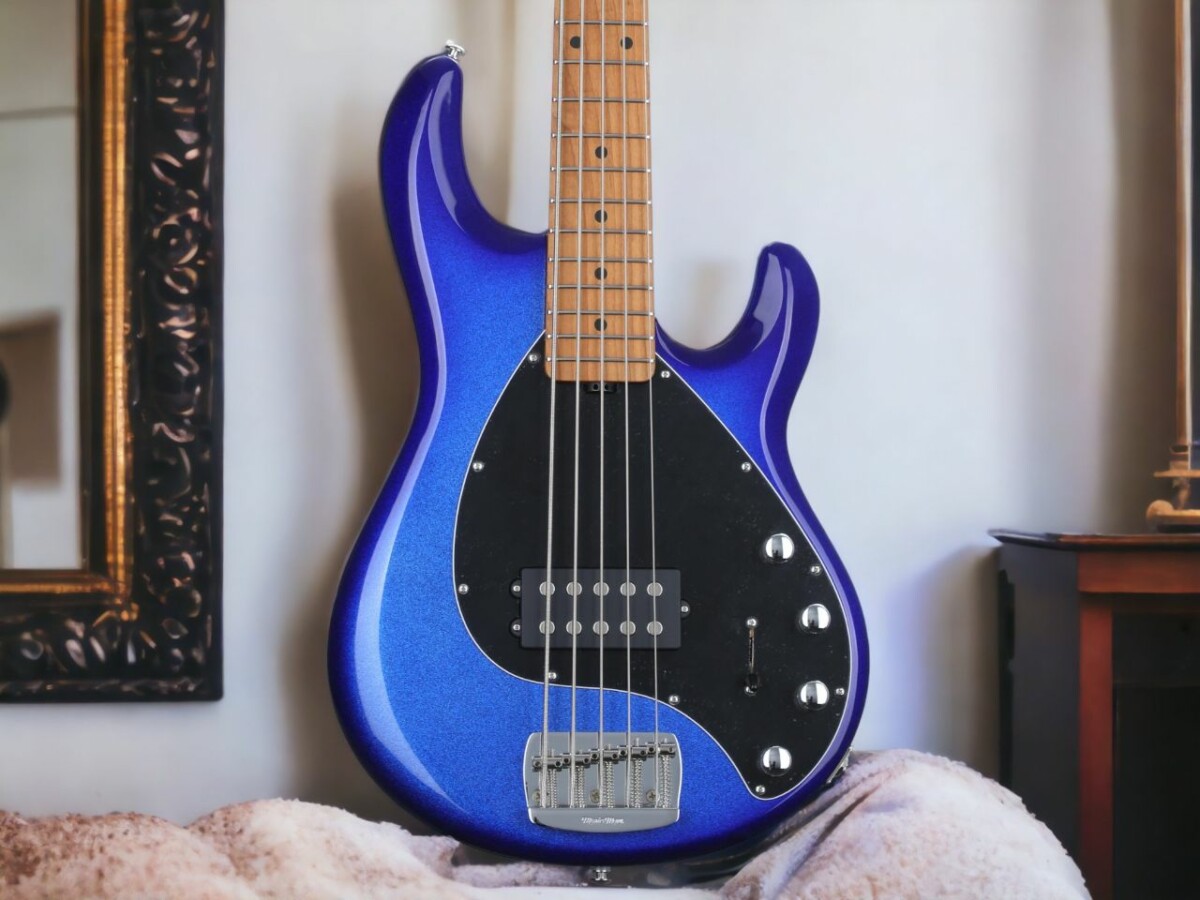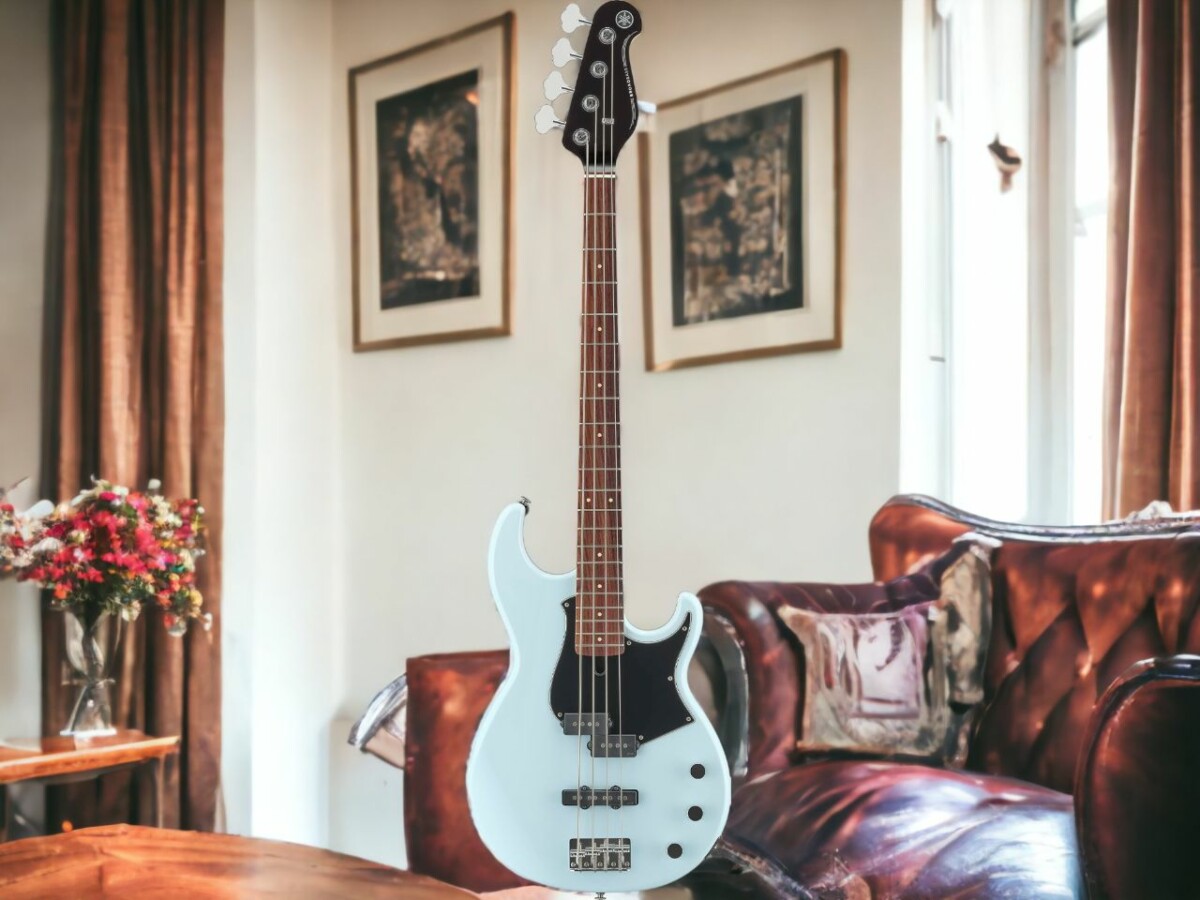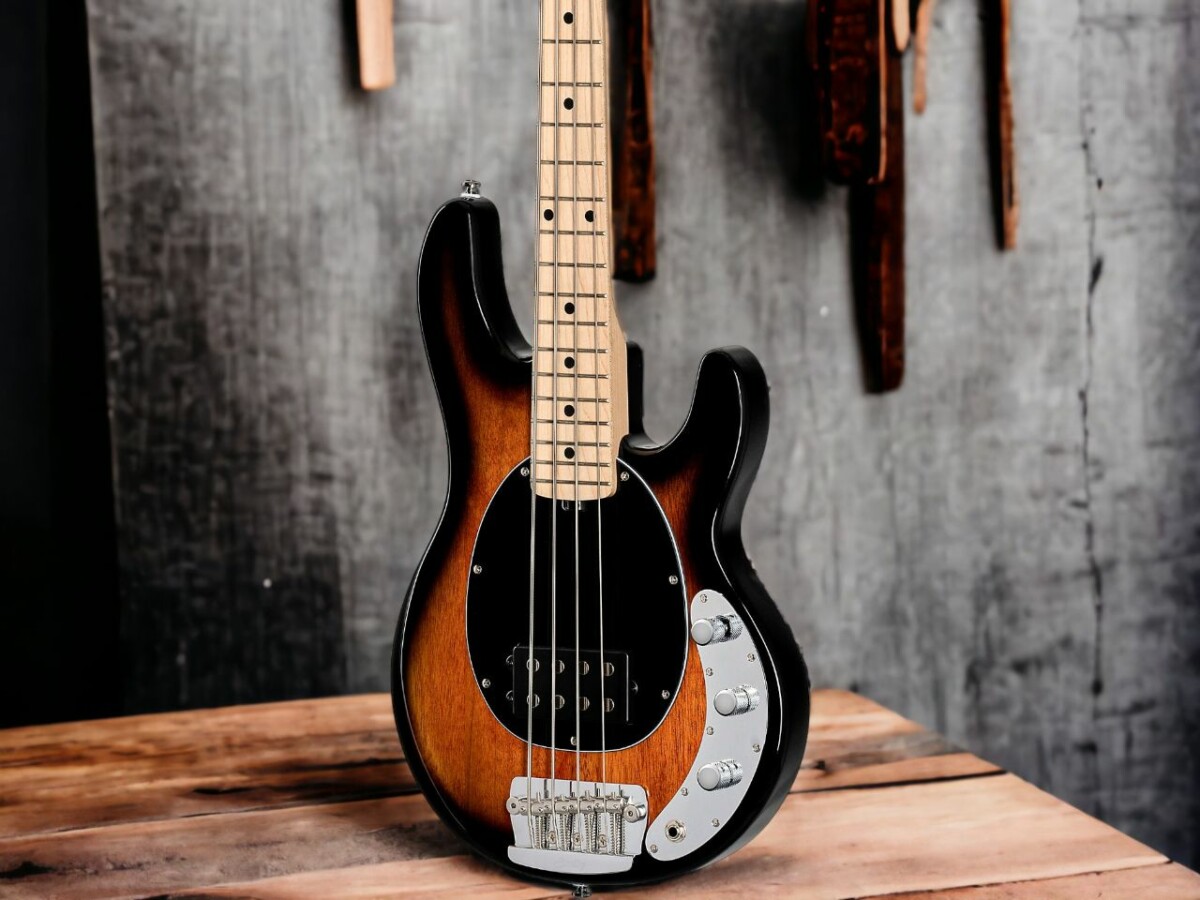You’re up there, live on stage, bass guitar strapped on, with the sheer energy of the crowd ringing in your ears. Ever had that curiosity nudge you, asking if you could whip up that spine-tingling feedback like your guitar-wielding comrades? It’s not a regular scene, but it’s absolutely doable.
Let’s deep dive into this piece to understand the fascinating mechanics of bass feedback, the way it’s maneuvered, and its distinctive part in the music scene. Time to crank that gain up a notch and journey through the often overlooked realm of bass guitar feedback.
Can Bass Guitars Provide Feedback?
Absolutely, feedback can definitely come into play with a bass guitar. Feedback happens when your speakers push out amplified sound that goes back into your instrument, gets re-amplified, and creates this looping effect. This results in a resonating or long-lasting sound, which can be pretty cool when used intentionally!
So, you might’ve noticed that bass guitars don’t have as much feedback as electric ones. That’s mainly because bass guitars typically don’t use as much distortion or gain. But hey, that doesn’t mean you can’t make it happen. There are some cool tricks you can use to get feedback on your bass, like moving closer to the amp, pumping up the volume, or using some wicked effect pedals. Speaking of which, have you ever wondered can you use guitar pedals on bass?
Diving into the world of feedback with your bass can open up a ton of new sounds. We’re talking about a whole range of tones and textures that can seriously up your game. It’s like adding a whole new set of colors to your musical palette. And the result? A sound that’s richer, fuller, and more dynamic.
Mastering feedback can literally change the way you make music. So don’t be afraid of it. Embrace that feedback. It’s just another weapon in your musical arsenal, helping you craft your unique sound.
Roles of Electric Bass and Electric Guitars
When you dive into the music scene, it’s hard to miss the unmistakable vibes of the electric bass and guitars. Listen closely, and you’ll catch how each one brings its own flavor to the band’s sound.
The bass guitar? That’s your low-key hero, laying down deep notes and steady rhythms that form the backbone of any track. On the flip side, the electric guitar is your high-flying rebel, belting out melodies that slice through the sound mix like a hot knife through butter.
And let’s not forget how the bass guitar takes center stage in different music genres. It’s the steady pulse powering rock, the slick groove that gets your head bobbing in funk, and the driving engine that propels jazz to new heights. Speaking of bass, have you ever wondered, is bass guitar easier than electric guitar? This topic might just surprise you with some interesting insights.
Techniques to Induce Feedback in Bass Guitars
There’s a bunch of rad ways to get that feedback sound from your bass, and getting a handle on these can really take your gigs to the next level. One of the tried and true methods is rocking a feedback pedal for your bass. This nifty little gadget tweaks the signal from your bass, spinning it into a loop that pumps out long-lasting notes or harmonic overtones.
You can also try getting up close and personal with your amp. The noise from the speaker causes your bass strings to vibrate, and voila – feedback. You’ve got the power to regulate this by playing around with your stance and cranking up or turning down your amp.
Getting your head around feedback in bass can seriously up your music game. It’s all about stepping outside your comfort zone, experimenting with new sounds, and bringing a unique edge to your playing style. It’s a bit of a wild card move, but it can lead to some really cool, unexpected tones.
Managing and Controlling Feedback in Bass Guitars
Sure, there are plenty of bass guitarists out there who are all about that raw, chaotic feedback, but for the majority of us, we’re on a mission for that crisp, clean sound. There are loads of techniques you can tap into to keep that feedback in check.
Take noise gates or suppressors, for instance. These bad boys can seriously slash that unwanted feedback, giving your sound a serious upgrade. Here’s a hot tip: mind your distance from your amp. If you’re too up close and personal, you’re just begging for more feedback.
Tweaking your EQ settings is another game changer. Why? ‘Cause different frequencies are more likely to give you feedback drama. It’s all about finding that sweet spot. And don’t be afraid to play around with different pickup configurations, too.
Here’s the thing though, feedback isn’t the enemy. It’s just another weapon in your musical toolkit. So the trick is learning to master it, not eliminate it. Use it to add a little spice to your sound.
Further Bass Insights
As we journey more into the sprawling world of bass guitars, there are definitely some uncommon points and queries that bass buffs think about. For example, you might think the idea of using a capo on a bass guitar is out of the ordinary, but it’s not completely off the rails. Just like on other string instruments, a capo can have specific functions on a bass’s deeper tones.
Switching gears, if you’re thinking about picking up bass guitar playing later in your life, remember, it’s never too late. Age is a non-issue when it’s your passion and you’re up for learning. Got questions about learning to play bass when you’re 50? Don’t sweat it – we’ve got an article you should definitely check out that drops some knowledge and inspo for beginners of a certain age.
Lastly, for those thinking about moving or selling their prized possession, knowing the nitty-gritty is crucial. Make sure to do your research about shipping a bass guitar so that your baby stays safe during transit and potential damage risks are minimized.
Contributions of Bass Guitars in Music
Slapping the bass isn’t just about belting out those low-pitched vibes; it’s actually about laying down the beat, shaping up the harmony, and bringing a whole new level of feel to a tune. Over the years, the bass guitar’s role has evolved across different music styles, changing the way we feel and groove to the beat. From the silky jazz to the intense punk, the bass has always been a game changer, supporting melodies, and acting as the sonic glue that holds the drums and guitars together.
The influence of the bass on how a song sounds and feels is seriously deep. It’s like the heartbeat of the tune, setting the pace, and adding emphasis to those rhythmic patterns. In a lot of ways, the bass guitar is like the unsung hero of a band, providing a solid base for all other instruments to shine.
Don’t sleep on the power of the bass when it comes to adding texture and depth to music.




